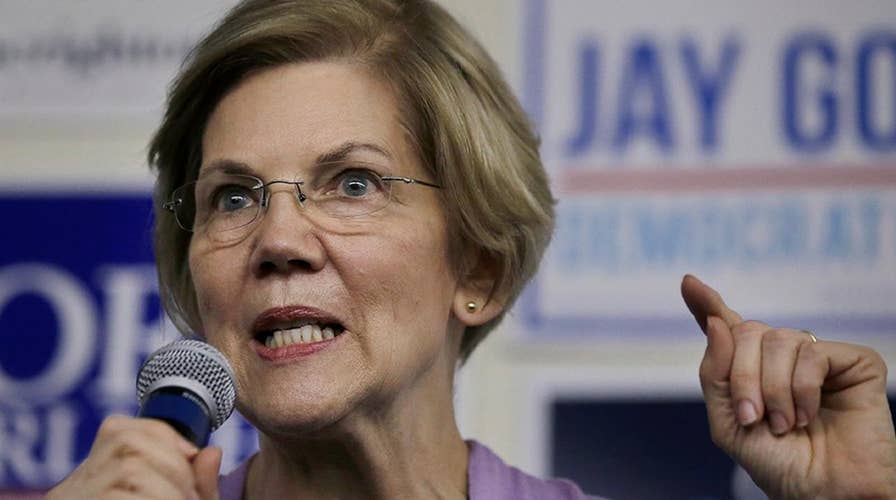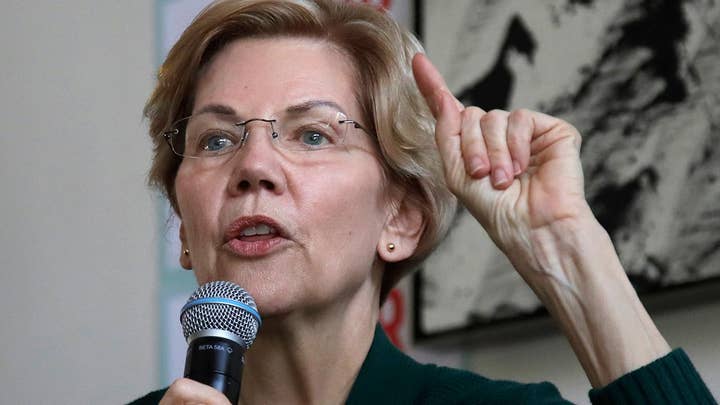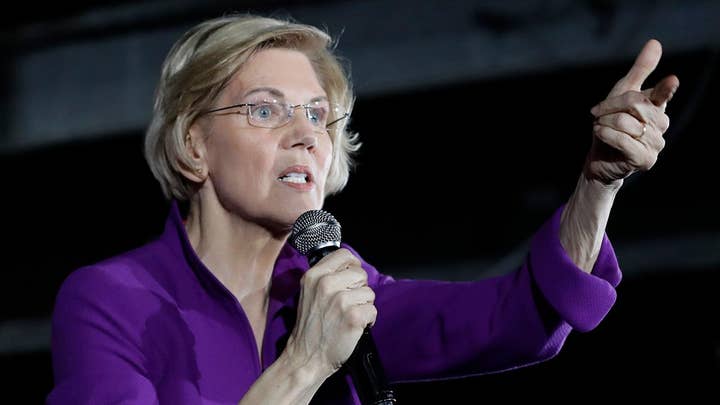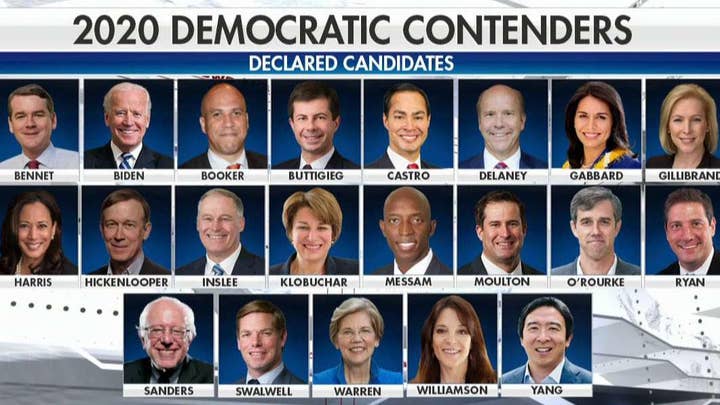2020 presidential hopeful Senator Elizabeth Warren (D-MA): What to know
What to know about 2020 presidential hopeful Senator Elizabeth Warren (D-MA) including the major issues she advocates and what issue she may still need to overcome.
Sen. Elizabeth Warren, D-Mass., on Tuesday called for doing away with the Department of Commerce and several other smaller agencies, and replacing them with a new department responsible for creating new jobs.
Warren, who currently sits in the middle of the pack in a crowded field of Democratic presidential contenders, wrote in a post on Medium that this new department would have “the sole responsibility to create and defend quality, sustainable American job.”
“The new Department — the Department of Economic Development — will replace the Commerce Department, subsume other agencies like the Small Business Administration and the Patent and Trademark Office, and include research and development programs, worker training programs, and export and trade authorities like the Office of the U.S. Trade Representative,” Warren wrote.
She added: “The new Department will have a single goal: creating and defending good American jobs.”
2020 DEMOCRATS TAKE AIM AT BIDEN AT CALIFORNIA CONVENTION
Warren’s new proposal is part of her "economic patriotism" agenda – one of a series of ambitious policy proposals that have become a trademark of her campaign – and comes ahead of her first campaign tour of Michigan. The state, which was once a Democratic stronghold, went to President Trump in the 2016 presidential election – largely thanks to Trump’s appeal with blue-collar workers in the state’s manufacturing base.
Warren’s visit to Detroit and Lansing, and her economic proposal, are both aimed squarely at Midwesterners who have watched millions of manufacturing jobs disappear in recent decades.
“My Administration will pursue fundamental, structural changes in our government’s approach to the economy, finally putting American workers and middle-class prosperity ahead of multinational profits and Wall Street bonuses,” she wrote on Medium.
The Trump campaign mocked Warren's call for "economic patriotism" as a recycled Obama idea.
But it's also unclear how Warren would turn some of her most costly policies into reality, especially if Democrats don't win back control of the Senate in next year's elections. The last time Congress approved a significant new Cabinet-level department was 2002, when the Department of Homeland Security was created. And the $2 trillion price tag of Warren's clean energy manufacturing plan would prompt plenty of Republican critics.
That plank of her agenda is directly tied to the Green New Deal, a framework for dramatically cutting the nation's dependence on fossil fuels that's championed by rising liberal star Rep. Alexandria Ocasio-Cortez, D-N.Y.
WARREN THE LATEST 2020 DEMOCRAT TO LAND ON TIME MAGAZINE COVER
As outlined in her Green Manufacturing Plan for America – another policy proposal she released on Tuesday – Warren would pay for her program with proceeds from her proposed new tax on corporate profits and by ending tax subsidies for oil and gas companies and rolling back some provisions of the GOP's 2017 tax law.
“According to the independent Moody’s analysis of my plan, nearly its entire cost is covered by my Real Corporate Profits Tax — a tax that ensures that the very largest and most profitable American corporations don’t pay zero corporate income tax — ending federal oil and gas subsidies, and closing corporate tax loopholes that promote moving good jobs overseas,” Warren wrote.
Warren is betting that her campaign pledges will power her forward with Midwestern swing voters who are open to deserting Trump. Her clean manufacturing plan comes hours after another Democratic contender, former Vice President Joe Biden, released his own Green New Deal-linked agenda, which would spend $1.7 trillion over 10 years.
CLICK HERE TO GET THE FOX NEWS APP
Biden is perceived as a threat to Trump in the Midwest, but Michigan Democrats see ample room for Warren to break through in a state that's twice elected women to its highest office. And although Warren burnished her reputation as an advocate for the working class by criticizing the bailout of Wall Street banks while serving as a watchdog of the government's 2008 financial rescue, she spoke more favorably at that time of the agreement that spent billions of dollars to keep U.S. automakers afloat, a position she is sure to highlight in Michigan.
"Wages have not grown, and people look at layoffs being imminent or threatened, not just in the auto industry," said former Michigan Democratic Party chairman, Mark Brewer. "They're looking for somebody on their side, who understands their problems. Why Trump had such appeal in 2016 was that he tapped into that economic anxiety."
The Associated Press contributed to this report.








